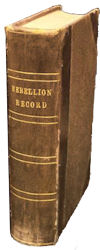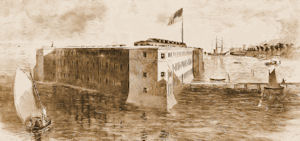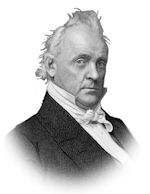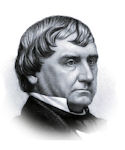FORT SUMTER S. C., January 31, 1861.
(Received A. G. O., February 4.)
Col. S. COOPER, Adjutant-General:
COLONEL: The South Carolinians are still busily engaged at work at two places on Cummings Point, They are using heavy timbers, which they square and frame. Last night they worked at least half the night. The agent of the New York steamers informed us yesterday that he could not get a lighter to come down for the women and children, but that he will send one for them to-morrow, 80 as to take them in the Saturday steamer. No reply, as yet, from the Charleston butcher, Our beef contractor. I presume that he dare not send us any provisions, for fear that he will be regarded as a traitor to South Carolina for furnishing comfort and aid to her enemies.
God save our country.
I am, colonel, your obedient servant,
ROBERT ANDERSON,
Major, First Artillery, Commanding.

_____
FORT SUMTER, S.C., January 31, 1861.
(Received A. G. O., February. 4.)
Col. S. COOPER, Adjutant-General:
COLONEL: I hasten to write this letter, to be taken to the city by my friend, the Hon. Robert N. Gourdin, to say that the butcher has sent down a supply of fresh beef, with a note from him stating that he had not received my note, and that he did not, therefore, know of my order to him to continue my supplies as when I was in Fort Moultrie. He states that he sends the beef to-day in compliance with instructions from Mr. Gourdin, who has received a letter from me, in which I had alluded to my having written to him about it. He concluded by saying that he will cheerfully send what I require. Mr. Gourdin says that his excellency the governor is very desirous that we shall receive our supplies regularly, and thinks that there can be no difficulty in reference to groceries also. Hoping in God that there can be no further difficulty of any sort in this harbor,
I am, colonel, respectfully, your obedient servant,
ROBERT ANDERSON,
Major, First Artillery, Commanding.

_____
FORT SUMTER, S.C., January 31, 1861.
General Jos. G. TOTTEN,
Chief Engineer U. S. Army, Washington, D. C.:
GENERAL: I have the honor to acknowledge the receipt of your letter of the 28th instant, informing me that $15,000 was placed to my credit with the assistant treasurer of the United States at New York. This relieves me from my present embarrassment. I shall, however, require $5,000 more for Fort Sumter by the end of the month of February. The operations of the South Carolinians around us continue to be carried on with activity by means of a large force of negroes. The battery on Cummings Point, mentioned in my last letters, is being enlarged into a field work, the parapet of which is not sufficiently formed to distinguish the trace with accuracy. To the west of this field work they have commenced what appears to be a redoubt. This is quite near the western point of Cummings Point.
Steamers are quite active, especially at night, in delivering materials at this point. A very large quantity of timber has been delivered, in and used for revetments, platforms, and, apparently, bomb-proof shelters.
On Sullivan’s Island I have learned that the battery in the cross street opposite Dr. Ravenel’s house, also opposite where the chaplain, Rev. Mr. Harris (now at Fort Washington), lived, is for mortars, apparently, as no embrasures are formed, but that neither guns or mortars are, yet, placed in it. The batteries on the island above Fort Moultrie are two in number. The first is only a short distance above the Moultrie House, and about 1,460 yards above Fort Moultrie. It is armed with three guns, either 24-pounders or 32 pounders. It is not in sight of this fort, being in range of and beyond the Moultrie House. Its position is opposite that portion of the Maffitt Channel which comes closest to the island.
The second battery is at the upper or east end of the island, and is armed with two guns, 24 or 32 pounders.
The last information from the island gave the number of men there as 1,450. But of these a very large number are raw recruits for the regular regiment that they are forming.
In this fort we are hard at work perfecting the arrangements for defense and offense, and creating new ones. Three 10-inch columbiads and four 8-inch columbiads (for which there are no carriages) are arranged as mortars.
The women and children are to leave for New York to-morrow by steamer.
The authorities have promised to send over my private effects from Sullivan’s Island, but have declined to allow me, or any one sent by me, to go over to collect them and pack them. I am, however, pleased to secure what I can in the way that is indicated by the authorities. I will write again in detail as soon as I can determine the trace of the works on Cummings Point.
Very respectfully, your obedient servant,
J. G. FOSTER,
Captain, Engineers.









